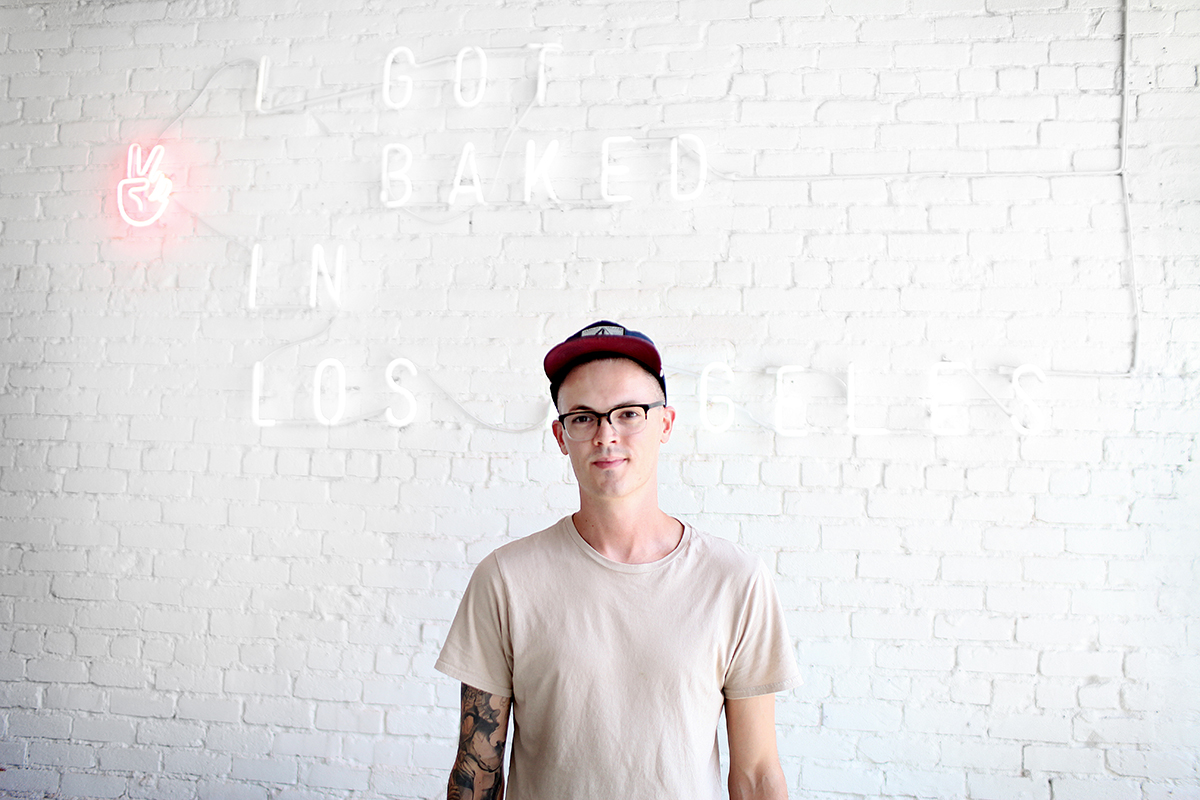Bakery owners have plenty on their minds when it comes to running their businesses. Two of the greatest business-related challenges that exist at any retail bakery are 1) finding skilled labor, and 2) managing labor costs.
The scarcity of talent in the baking industry, as well as the salaries for those who can fill necessary kitchen positions, has led many owners to look for new ways to cut costs. Automation has risen in the industry in recent years, especially at bakeries looking to meet growing customer demand for their products.
That’s certainly true at Porto’s Bakery & Café, which operates five locations in Los Angeles (with a sixth scheduled for 2021) and serves more than 10 million customers a year, making it arguably the largest retail bakery in the country.
“One of the reasons we have automated so much is to keep our prices low. We try to keep the lowest prices we possibly can,” says owner Raul Porto. “We look at anything and everything we can think of to save costs.”
California’s minimum wage law rose one dollar on Jan. 1, with an additional dollar to be tacked on every year through 2023. As it currently stands, the minimum wage for employers with 25 employees or fewer is $12 an hour, while that number jumps to $13 an hour if they have 26 or more employees.
In an industry that relies on handcrafted, gourmet production and is facing higher labor costs, automation might not be the answer for every bakery in order to maintain quality without raising prices for customers. What is one to do, especially in a state like California? Aaron Caddel believes he has the answer. The 28-year-old CEO and founder of Mr. Holmes Bakehouse, a thriving baking brand on the West Coast, thinks that the system his team has implemented could be revolutionary in the industry.
He got into the business at a young age, opening a few coffee shops when he was 19 and 20. At that point, he had seen an opportunity within the baking industry and took it.

“Food has always been my passion. The hospitality industry in general, really. So that move was fairly organic for me,” Caddel says. “It seemed quite clear that everyone was going to the same three bakeries, who were doing a stellar job, but did not have the ability to meet the demand in that market.”
Mr. Holmes Bakehouse started with wholesale and transitioned to a retail location in 2014. According to Caddel, the bakery was fortunate to have lines around the block early on, which helped in its growth.
The Instagrammable bakery now has two locations in California (San Francisco and Los Angeles), as well as a growing list of franchise agreements overseas. That success has been due to the hard work and ingenuity of Caddel and cohorts. It has also facilitated the need for more talent. With bakeries competing for a limited number of individuals, Mr. Holmes Bakehouse needed to stand out from the rest, which was the motivation for the bakery’s performance-based pay system.
“A 30 percent increase in minimum wages over five years is decimating businesses. In fact, there’s entire business models that don’t even make sense anymore. To make things worse, there’s this exodus of talent due to the inability to afford the growing cost of living,” Caddel says. “The first pin to fall in this equation is not going to be Starbucks or McDonald’s, it’s going to be small businesses in reaction to that dilemma.”
The system was developed through a trial-and-error process as they figured out what worked and what didn’t. This process had its pros and cons, Caddel says, but he believes that it was ultimately good because they didn’t come into it with predisposed ideas on how the system should work.
“The idea for us was that wages are increasing, and we need to stay competitive to continue hiring on the best talent in the industry – talent that is already not able to afford living in these cities. So how do we make it a win-win situation for everyone?”
Mr. Holmes Bakehouse has quantified performance at each position in the kitchen, with each position having three levels. Each person is tested on three core procedures at his or her position, with their performances determining levels and wages. Higher performing staff members earn more than $20 an hour.
Instead of a compensation structure where raises are time-based (how long someone has been at a company), this system rewards effort and proficiency. They can also be lowered if an employee fails to meet the standards of his or her level. If that person can only maintain quality at slower paces, then he or she will get paid at “a minimum output expectation.”

Employees are tested every six months if they’d like, in order to determine this output expectation and wage level. They are held accountable for their work. If lowered production continues, employees can choose between demotion or moving on.
Not only does the system help Mr. Holmes Bakehouse to maintain kitchen quality, but it also helps managers to staff them in the best way possible. For instance, a shift might need one Level 2 person, or it might need a Level 3 paired with a Level 1, depending on who’s available.
“As far as recruiting, it has definitely solved that problem. We have plenty of people applying to be a part of our locations, and that means we get to bring in top talent,” Caddel says.
There have been both positive and negative reactions to this system from employees, although they tend to be more positive. According to Caddel, 60-to-70 percent of the people in Mr. Holmes Bakehouse kitchens are Level 3, so the motivation is clearly there. Acknowledgement of position and compensation has been a defining factor in this system’s success.
In a study published in Human Resource Management Journal in January of 2017, researchers looked at three different types of “contingent pay” — performance-related, profit-related, and employee stock ownership — and how they affected employee attitudes such as job satisfaction, commitment to the company, and trust in management.
The study found that only performance-related pay positively affected all three of these employee attitudes. However, the study also found that this type of pay arrangement could stress them out to a degree that might negate the beneficial effects. Ultimately, it can lead to decreased job satisfaction. A key component of the system is to find a balance. Make goals that aren’t too easy to achieve, but also not too difficult in that employees don’t feel defeated from the start. It’s also important to make pay proportionate, so that employees aren’t working too hard for too small a reward.
Caddel and his team feel that they are on the right track with this balance, and the quantifiable results have been staggering for the company.
“We witnessed a 50 percent increase in labor efficiency while dishing out raises to nearly our entire team. It’s made us more profitable, but we also may have been able to solve a very large problem that has been systemic internationally,” Caddel says.
“This has become a big attracting point for our partners. How we are able to address their labor concerns within their own market.”Caddel says that there needs to be an adjustment in how we view this industry, employees, and the value of their labor.
Since his system was profiled in a Forbes magazine feature in early January, he has received a number of consulting requests as others seek to replicate the success Mr. Holmes Bakehouse has achieved. He hopes that as his company continues to grow and other companies find their own solutions to labor costs, the dialogue will be there to change the system for the better.




